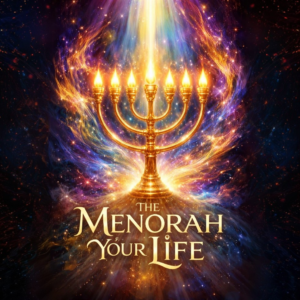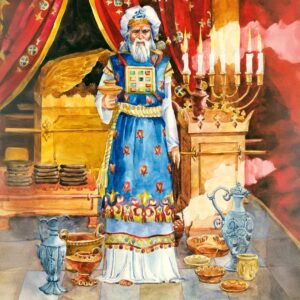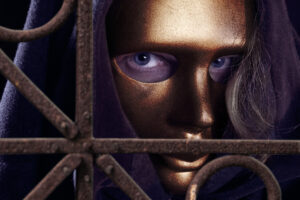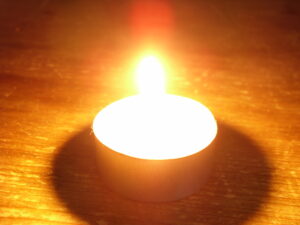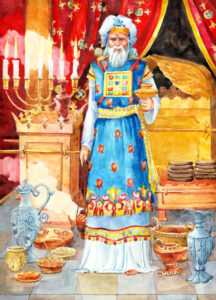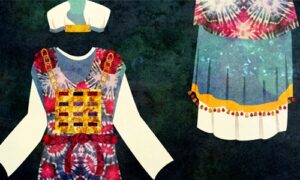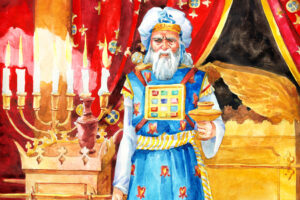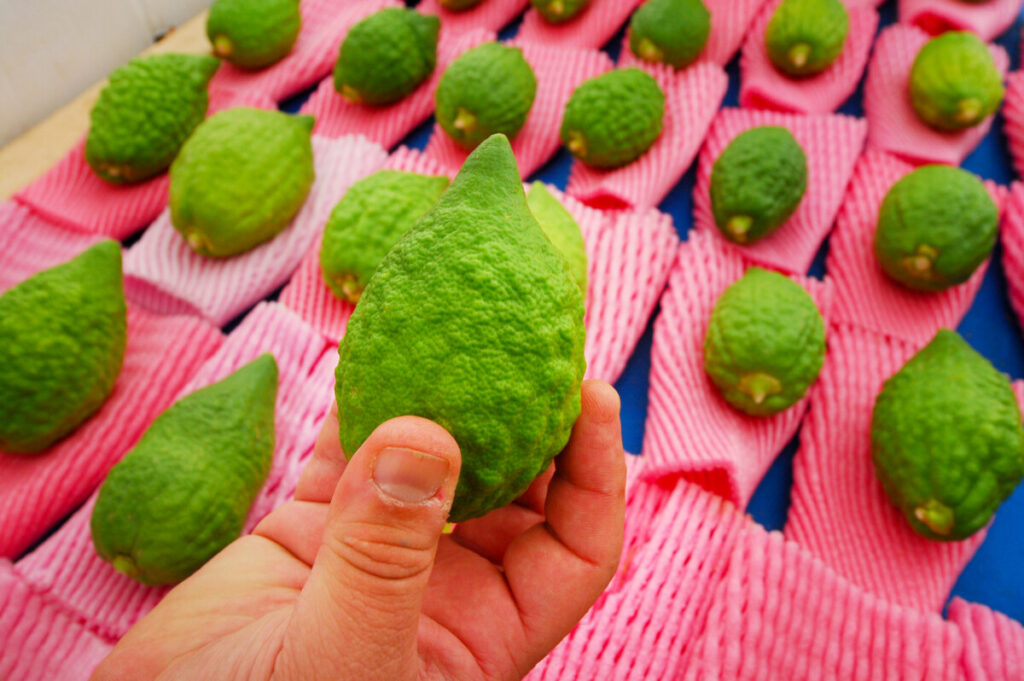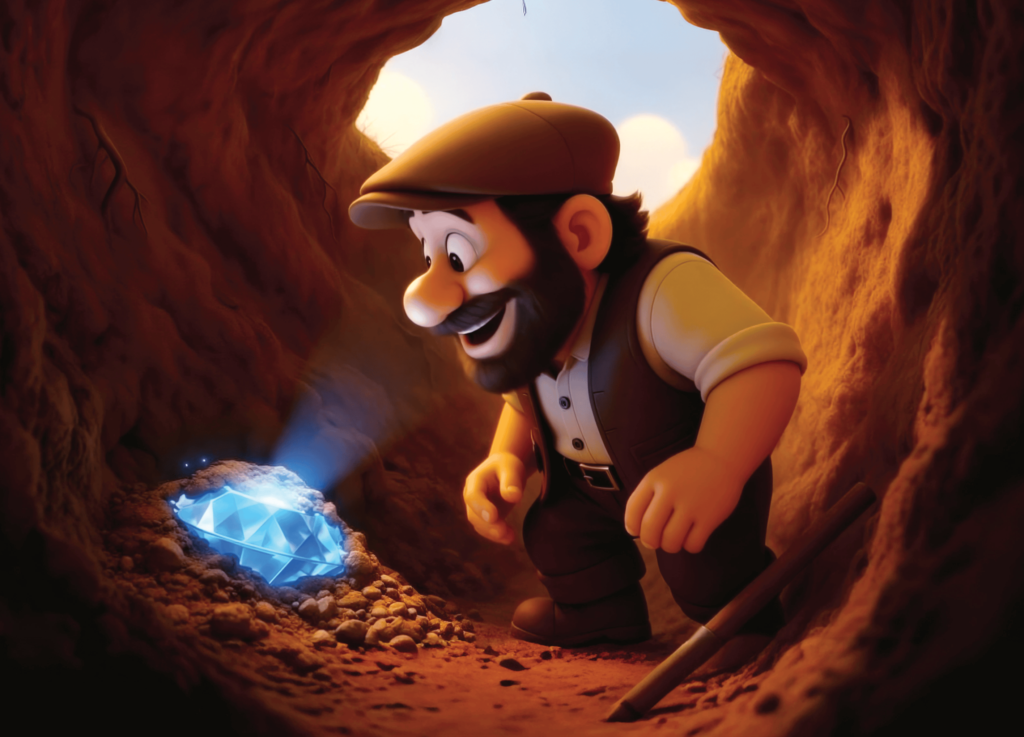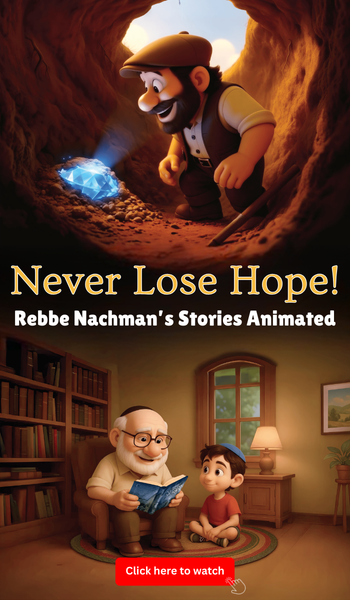- Faith ⬦ Leaders ⬦ Read ⬦ Shabbat ⬦ Weekly Torah Portion
Korach’s demise was Honor! – Parshat Korach
Korach believed that because from him would come great people like Shmuel, then he had to be honored. Really, it’s the exact opposite!
Let’s look inside at what is going on.
We’re going to look at a beautiful piece in Likutei Halachos on the parshah.
“Vayikach Korach: Amar raboseinu z”l (in Bamidbar Rabbah) sheKorach eino metatu”–Korach made a mistake; his eyes fooled him.
Ra’a shalsheles gedolah yatzah mimenu- He saw his offspring. Who was going to come from Korach? Shmuel, the holy prophet. Who was Shmuel? He was the one who anointed Dovid haMelech, David the king, from who Moshiach will come. Korach saw that he was going to have such an illustrious descendant, so he figured that he himself must be great if his descendent wiouuld be so great.
And the 24 mishmaros, the watching periods in the Beis haMikdash, all came from Shmuel.
We’ve learned this concept before: the greater the person, the greater their yetzer hara. Hashem makes everything zeh le’umah zeh, everything balances.
You can’t have a bigger yetzer tov and a smaller yetzer hara – you have a big yetzer tov and a big, big, big yetzer hara that goes along with it. The evil side has to always be equal to the good side.
Korach’s yetzer hara made him err through mitzvos.
He saw that Moshe Rabbeinu had no great offspring. We never hear about Moshe Rabbeinu’s children. Yet he saw that from himself, it was gevaldig. The honor of Hashem was being expressed through his descendants!
In every generation, the honor of Hashem has to be revealed, and therefore we must always leave over students and children. Those are the exchanges of a person. (In other words, when the Rebbe leaves the world, he makes a chalifah, he exchanges, with his children or his students and they take over from him.)
It is brought down in Likutei Moharan, Lesson 7: Then he answers, since he was able to see, that from him he saw with ruach hakodesh that from him would come great generations of tzadikim, and they would reveal the glory of Hashem to the world, and who did that better than Shmuel the Prophet?
[Korach] said, all the greatness is coming to me. “Alles kum tzu mir, everything belongs to me.” Why shouldn’t he be the nasi? Why shouldn’t he be the one with the power?
Korach believed that because from him would come great people like Shmuel, then he had to be honored. Really, it’s the exact opposite: we are supposed to work on bitul, nullifying our egos. Korach didn’t understand that. He thought that he deserved greater honor than others and that people would listen to him more than to others who did not have such inherent greatness.
It’s amazing, but it is the yetzer hara tricking him and seducing him into doing this.
You can’t have a bigger yetzer tov and a smaller yetzer hara – you have a big yetzer tov and a big, big, big yetzer hara that goes along with it.
Participant 1: Excuse me, I think it’s worse than that. You could say that something is tricking him, but he is allowing this process to take place.
Exactly!
P1: It’s not like he’s a fool. He’s got some seichel-
Korach was a brilliant man!
P1: He was allowing this to happen. He knew better. He knew better. This is just like the Sitra Achra that’s bothering him.
Ok, we also learned in the many lessons from the Nesivos Sholom over the years, and from many [other] tzadikim, that when a Jew is being tested, he does not have his greatness with him, because if he had his greatness with him when he was being tested, what kind of test would that be? So, Korach was a great person, but only when a person serves Hashem with mesiras nefesh, when he goes the extra mile to serve Hakadosh Baruch Hu, then he gets to keep and have his greatness with him during a test.
This is what happened with Korach. He didn’t understand this. The yetzer hara was attacking him, and he thought that since he had this nevuah and knew that Shmuel was his descendant–and that’s not stam, that’s not a simple thing. Shmuel was one of the greatest prophets! Korach was on the right track for understanding that, but to come and challenge Moshe Rabbeinu?!
Let’s see what the Rebbe says.
The kavod of the chachamim is their nachlah, their inheritance. That’s what is important to them. “Whoever honors me will be honored.” That’s what it says in Shmuel. And since he would be busy revealing the glory of Hashem, it is certain that he should have all the honor, that he should be famous and have his nesi’us, his princeship, and he can rule in the world and guide the Jewish people in the way of kedushah, to illuminate for them this holy knowledge in the world.
That is why we had many tzadikim, many nesi’im, and many kings who were greatly honored. When someone is honored, and you see their greatness, you listen to that person. We’re more inclined to listen to someone who is honored and revered than someone who is not.
But this tzaddik who receives honor, must be a great anav; he must be very humble and understand that the honor really belongs to Hashem, not to any person in this world. Honor doesn’t belong to people, and a true tzaddik knows that. A true tzaddik takes the honor for Hashem. Like Moshe Rabbeinu.
Who was Moshe Rabbeinu? He ran away from honor. He didn’t want any part of it. He wasn’t looking for it. Not only did he not need it, he didn’t want it. He ran from honor, and he never took it for himself.
That’s the point, chevrah. Moshe never took the honor for himself. He gave it all to Hashem, because that is where it belongs. It doesn’t belong with people.
So what happened over here?
The kavod only comes for Hashem, in order that the greatness of Hashem should be revealed and known to every generation.
Here’s what happened. Korach made the mistake of thinking that since greatness would come from him, and the glory of Hashem would be revealed through them, that he was entitled to some of that glory. He was the opposite of Moshe Rabbeinu. Moshe was rightfully due to receive kavod, but he ran away from it; Korach was not doing this for the sake of heaven but only because he wanted honor for himself. He wanted the honor, the glory, the fame, and he was very strongminded. It entered his mind that he should be the one to rule.

The evil side has to always be equal to the good side!
This is how Korach made a fatal error, and he rebelled against Moshe Rabbeinu, the true tzaddik. He caused a division between Moshe Rabbeinu and some of the people. Everyone heard “Anochi Hashem” at Har Sinai. We learned from the Kedushas haLevi that every time Hashem said something, our neshamos were sent back 2000 mil, and then the malachim escorted the neshamos back into our bodies. Why did we need malachim to do that? Because the angels understood that it was only through klal Yisroel that they, the malachim, could live. Hakadosh Baruch Hu made the world, this world and the world of the angels, only for klal Yisroel. The malachim understood that if we didn’t get our neshamos back, we would cease to exist.
(The next question is, who gave them the right to touch the neshamos of klal Yisroel? The malachim are not as holy as our neshamos are; our neshamos come from a higher place. It was pikuach nefesh for them to do what they did.)
It was drawn from all of their fathers, from them; they were saying, “We all were zocheh to hear this idea of ‘Anochi Hashem Elokecha,’ so what’s the big deal that Moshe Rabbeinu was responsible for it? We all heard it.”
So many people made this mistake, even in these generations (Rav Nosson writes), as if the Torah comes to them as an inheritance. It is known to those who are well-versed in the way the world was running at that time [i.e., members of the Haskalah/Enlightenment movement], who are arguing that the Torah is our inheritance and therefore we can make changes in it.
But Chazal teach us the opposite. Kesser shem tov, the crown of a good name, is placed on whoever wants to come and take it. The prophet Yechezkel says that the child is not responsible for the sin of the father. There were great tzadikim who had children who were evil, and many wicked men had children who were tzadikim. Who is the greatest example of that?
Participant 2: Terach and Avraham.
Excellent. What about our friend Lavan, who had daughters like Leah and Rochel? It’s amazing. Pirkei Avos teaches us, in perek 2:12, “Don’t say that the Torah is your inheritance.” It doesn’t belong to us. We learn from the holy Zohar that Yisroel is one unit with Hashem and the Torah. So, if we are one unit, how can I have an inheritance with what is already part of the unit?
Since the daas and emunah begin with our Avos. Avraham Avinu introduced emunah into the world. Everyone agrees with that. But they didn’t have anything concrete, that would remain with klal Yisroel in every generation, like Moshe Rabbeinu. We had great people, but they were not like Moshe Rabbeinu, who gave us the Torah.
Even after Matan Torah
Even in our generation, Hakadosh Baruch Hu sends us tzadikim all the time, great tzadikim, who teach us what Hashem wants from us. All the things that transpired among klal Yisroel, from all the generations until today, were blemished by Korach’s mistake. He saw his descendant’s greatness and thought that he himself was a great guy. He thought he attained the daas hakodesh. He came up against these great questions, that are greater than time, until he became a kofer be’ikar, a heretic.
These are amazing ideas to help understand the inner meaning of Korach’s mistake, how such a great person but a person who needed greatness, challenged Moshe Rabbeinu. Moshe, who was the humblest of men. He ran from kavod.
- 0 comment



